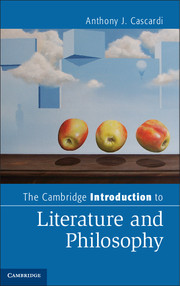Book contents
- Frontmatter
- Contents
- Acknowledgments
- Introduction
- Part I Questions of Truth and Knowledge
- Part II Questions of Value
- Chapter 5 Values, Contingencies, Conflicts
- Chapter 6 Reason and Autonomy, Imagination and Feeling
- Chapter 7 Forces and the Will
- Chapter 8 Opacity
- Part III Questions of Form
- Afterword Limits
- Glossary of Keywords
- Notes
- Index
- References
Chapter 6 - Reason and Autonomy, Imagination and Feeling
Published online by Cambridge University Press: 05 June 2014
- Frontmatter
- Contents
- Acknowledgments
- Introduction
- Part I Questions of Truth and Knowledge
- Part II Questions of Value
- Chapter 5 Values, Contingencies, Conflicts
- Chapter 6 Reason and Autonomy, Imagination and Feeling
- Chapter 7 Forces and the Will
- Chapter 8 Opacity
- Part III Questions of Form
- Afterword Limits
- Glossary of Keywords
- Notes
- Index
- References
Summary
The genre of the novel, glimpsed briefly in Chapter 5, places us squarely within the field of value as “made,” not as found. This does not mean that novels do not involve various forms of seeking, striving, searching, or longing for some essential value. On the contrary, novels quite often involve some form of quest. But it does mean that they tend to place value in the activity of seeking itself, and in what it may yield for the seeker by way of growth in self-awareness, rather than in anything that might be discovered externally. But we have yet to say what it means for either philosophy or literature to think of value as itself the product of human activity. How do we locate human value in forms of life that we ourselves generate? From a modern perspective it might hardly seem possible that things could be otherwise, but the idea of value as “made” is so broad that we will have to parcel it into more manageable pieces. This will in turn provide the opportunity to add nuance to what might otherwise be a very clumsy concept.
Here are some questions we should bear in mind as a way of framing this discussion: (1) What does it mean to ground human value in autonomy and freedom, and what might be obstacles to their achievement? How can these be balanced with moral obligation? (2) What is the role of the many different human powers that come into play in various forms of value-making – powers such as desire, the imagination, the force of genius, and the will? We can recognize that much of the literature and philosophy roughly described as “romantic” makes large investments in these powers; the question (3) is whether they can be reconciled with reason and morality, and if so how? (4) How should we deal with theories that doubt the transparency of value and call into question our ability fully to know and determine it for ourselves? Among these are psychoanalysis (which grounds value in unconscious desire) and historical materialism (which grounds value in forms of material production and in the consciousness of class).
- Type
- Chapter
- Information
- The Cambridge Introduction to Literature and Philosophy , pp. 79 - 94Publisher: Cambridge University PressPrint publication year: 2014

